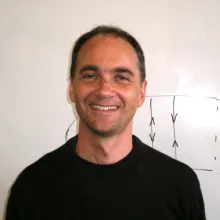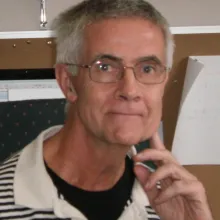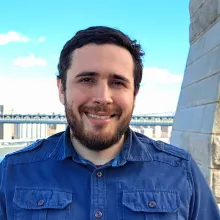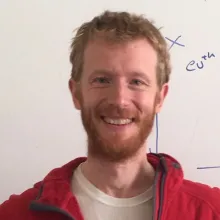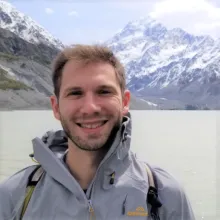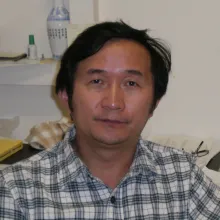
Analysis & geometry
The Analysis & Geometry research program explores the areas of differential geometry, several complex variables, non-commutative geometry, harmonic analysis, microlocal analysis, partial differential equations, operator theory, spectral theory, convex geometry and statistical learning theory, and banach algebras.
About
The Mathematical Analysis research group in MSI researches fundamental questions about functions and continuous processes. We study partial differential equations, harmonic analysis, microlocal analysis, stochastic analysis, mathematical physics, abstract analysis, geometric analysis, differential geometry, symplectic geometry and noncommutative geometry.
Capabilities
Each faculty member runs their own independent research program, often involving postdocs, PhD students, masters students and honours students, and with numerous international collaborators.
- Ben Andrews: geometric partial differential equations (including mean curvature flow and Ricci flow), geometric variational problems (including isoperimetric problems and eigenvalue inequalities), and geometric approaches to the analysis of differential equations.
- Xu-Jia Wang: fully nonlinear elliptic equations of Monge-Ampere type and their applications in geometry and physics.
- Shahar Mendelson: High-dimensional probability, theoretical data science and statistical learning theory.
- Andrew Hassell: microlocal analysis applied to spectral theory, quantum chaos, nonlinear dispersive equations, and rough wave equations.
- Pierre Portal: partial differential equations analysed using stochastic analysis to understand random dynamics at the microscopic level, and harmonic analysis to understand oscillatory patterns at the macroscopic level.
- Po Lam Yung: harmonic analysis, particularly function spaces (such as Sobolev spaces), singular integrals, oscillatory integrals, and related problems in Fourier restriction theory.
- Bryan Wang: geometric properties of moduli spaces in symplectic topology and gauge theories in low dimensions as well as invariants from these moduli spaces.
- Galina Levitina: Noncommutative geometry, spectral theory, operator theory and mathematical physics.
- Brett Parker: Symplectic geometry and Gromov-Witten and related invariants using exploded manifolds.
- James Tener: Operator algebras, functional analysis, and representation theory to study the mathematical foundations of quantum field theory
Reasons to work with us
Work with world-leading mathematical analysts. The quality of our faculty is shown by numerous awards and honours, including three Laureate Fellowships, two Future Fellowships, three Fellows of the Australian Academy of Science, two ICM addresses, medals including the Morningside Medal, Ambrosetti Medal, and several Australian Mathematical Society Medals.
Many of our PhD graduates have gone on to stellar careers in academia, while others have had outstanding careers in industry and the private sector.
Projects
Members
Convenor
Emeritus
Researcher
Honorary Professor
MSI fellow
Senior Lecturer / DECRA
Associate Professor
Retired Fellow
Retired Fellow
Retired Fellow
Student
PhD

